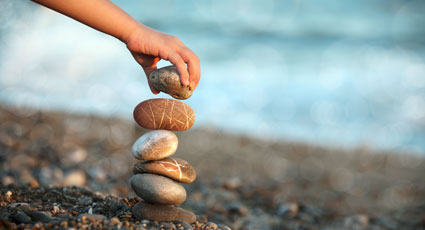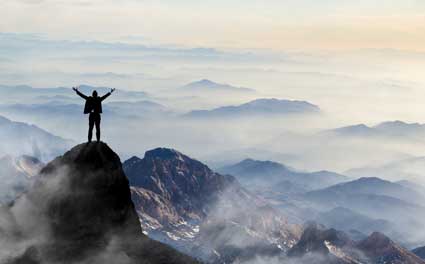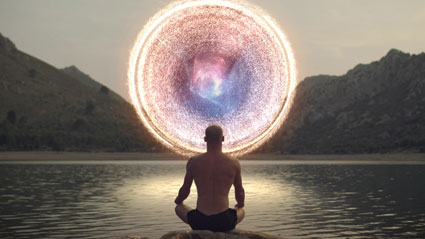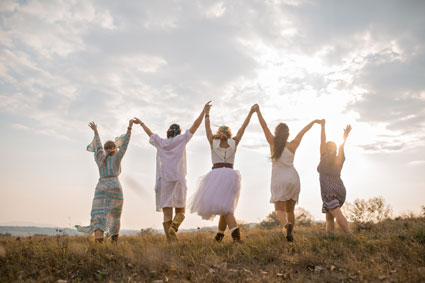Introduction
In this article, we will briefly discuss politics in modern Russia (post 1990), and present a short profile of several heads of state making news today, Russia's multiparty system, and a short glimpse into the Kremlin and the infamous KGB, past and present.
Vladimir Putin
Several prominent Russians have risen to the forefront in recent years in Russia, and in their most recently held presidential elections in early 2012, five candidates were officially registered on the voter ballots. Four came from traditional registered parties and one ran as an independent.
Today, Russia is a multiparty system, as illustrated by the nominees for recent Russian presidential elections in 2012.
- Vladimir Putin. United Russia Party.
- Gennady Zyuganov. Communist Party
- Mikhail Prokhorov. Independent Party.
- Vladimir Zhirinovsky. Liberal Democratic Party.
- Sergey Mironov. A Just Russia Party.
The variety of parties (or blocs) represented in the most recent presidential elections go a long way toward defining the great strides Russia has made in recent years toward more political freedom, independence, and opportunity. Just prior to the recent elections, former Russian President Dmitry Medvedev suggested that former Prime Minister Vladimir Putin place himself in the running. He did so, and in turn encouraged former President Medvedev to become Prime Minister of Russia.
Russia is divided into 46 provinces, 21 republics, and numerous smaller autonomous regions and federal cities. Modern Russia shed her Soviet Union status in 1991 and adopted her modern constitution in 1993.
Vladimir Putin is perhaps the most recognizable Russian politician and leader in his country's modern society, taking advantage of media opportunities to promote his programs, beliefs, and platforms. Following the election, Russian Prime Minister Vladimir Putin received nearly 64% of the vote, and successfully secured a third term in the Kremlin (a record in Russia). Putin will remain president until the next election in the year 2018.
Vladimir Putin's presidential campaign focused on foreign policy, military issues, and issues caused by the wide variety of ethnicities found in Russia today. He also focused on issues regarding democracy, government efficiency, and social policies. As with former Russian leaders, Putin insists that foreigners must stay out of Russia's business, and that Russia, "Has her own free will." Not everyone was happy with Putin's inauguration however, and protests did occur.
The 'presidency' in Russia has existed since 1990, whereas before, heads of state included chairman, dictators, and tsars. The official residence of the President is the Kremlin, located in Moscow.
Laws and regulations of the former Soviet Union were established in 1922 and have included the Constitution of the Soviet Union in the former Union of Soviet Socialist Republics (USSR). The Supreme Court has the highest degree of state power, and in the past, sessions of the Supreme Soviet Court of State were held and convened twice each year.
The first 'president' of the Soviet Union was Mikhail Gorbachev, directly elected by the Congress of People's Deputies. Today, executive powers and the powers of the presidency are shared between the prime minister and the president. In Russia, there is a difference between political roles today versus political roles during the Soviet era. This can get confusing to many studying Russia and Russian culture for the first time.
The Executive Branch includes the Chief of State, the Head of Government, First Deputy Premiers, Deputy Premiers, and the Cabinet. In essence, the government itself is a combination of the premier, the premier's deputies, and ministers, all of whom are appointed by the president. A presidential administration provides a staff as well as policies that can support the president, presidential decrees, and drafts, and helps to coordinate policies among different government agencies.
The Security Council in Russia reports to the president, and presidents are elected by popular vote for four-year terms. Russia also has a legislative branch and a judicial branch. The Federal Assembly contains an Upper House and a Lower House, while the judicial branch consists of a Constitutional Court, a Supreme Court, and a Supreme Arbitration Court. The Federation Council, following recommendations from the 'president', appoints the judges for each of these courts. Judges serve for life.
In summary, the Executive power of the Russian Federation is under the control of the government of the Russian Federation. As a recap, important members of government include the prime minister, the deputy prime ministers, and federal ministers. Laws of the land are specified in the Constitution of the Russian Federation.
Following the dissolution of the Soviet Union, the main executive body in Russia is called the Russian Council of Ministers. In turn, this Russian Council of Ministers is composed of committees from 65 different states, over a dozen ministers, numerous federal services, and several dozen governmental agencies. The president appoints the prime minister.
The structure of the Russian government in 2012 also consisted of bodies that focus on and are responsible for foreign policy and security. Most federal services and ministries report directly to the prime minister. The government (the first deputy Prime Minister, the prime minister, 6 deputy prime ministers and 21 other ministers also known as the "presidential bloc") makes up the 'government'. These individuals also include members of the Foreign and Interior Ministries, the Justice and Defense Ministries, and the Emergencies Ministry.
Another aspect of Russian government that has always been wrapped in secrecy and mystery is that of the KGB, and one of the things that foreigners still equate with Russia is the power, might, and fear of the KGB. The KGB, known in Russian as Komitet gosudarstvennoy bezopasnosti, or more easily for American tongues, 'The Committee for State Security', was feared for generations.
From 1917 until 1991, the KGB served as the National Security Agency. Responsible for intelligence, internal security, and the source of secret police organizations, the KGB was a much feared entity for decades in Russia and around the world.
In the past, some nationalities equated the KGB with Hitler's Gestapo, and the KGB did have a reputation for many unacceptable behaviors. In the Soviet era, the KGB was responsible for several different forms of espionage including disinformation, (military, political, and economic). KGB agents or spies became legendary, with books, movies, and rumors about them running rampant.
The KGB was originally created to defend the Bolshevik state from her enemies, and gradually increased its power during the Cold War years. Indeed, today's Russian President, Vladimir Putin, worked as a KGB agent in the former Soviet bloc in East Germany in the 1980s.
For several decades, KGB agents and agents from other countries continually engaged in cat and mouse spy games that were not really games at all. During the Cold War years, the KGB gained a reputation of behaving like an iron fist on anyone who expressed dissent or dissatisfaction with Soviet rule. By the 1970s, the KGB had a firm reputation as being a power to be reckoned with in their ability to sabotage, smear, and trick her enemies.
The KGB today is comprised of a variety of entities, including a foreign operations director, counterintelligence personnel, Armed Forces military counterintelligence, political surveillance personnel, transportation security details, and so forth. The KGB remains an enigma to many foreigners, and its reputation as experts in subterfuge and secret agent operations remains unequaled today.
The Kremlin is Russia's version of the White House. Located in Moscow, the Kremlin is a unique blend of a palace, a castle, and a fortress. The Kremlin is situated in the heart of Moscow and has a view of Red Square, Alexander Garden, the Moskva River, and St. Basil's Cathedral. The word kremlin can more closely be termed as a citadel. The Kremlin property itself is composed of four cathedrals and four palaces, all surrounded by the Kremlin Wall, complete with Kremlin towers on the corners.
An imposing structure, the Kremlin is equated with power and rule in Russia. Fortifications have been found on the site of the modern Kremlin for centuries, with first signs of habitation in the second century B.C. The fortress was destroyed by Mongols in the 13th century, and rebuilt in the 14th century. Since then, the Kremlin has served as the official seat of grand dukes and as the fortified residence of tsars throughout history, including the Romanovs. The original Kremlin was literally abandoned by Peter the Great in favor of a residence in his new capital city, St. Petersburg.
The Kremlin itself endured years of strife, rebuilding, destruction, and wars, with improvements made here and there throughout the decades until 1918. Vladimir Lenin's Soviet-based government relocated from Petrograd to Moscow in 1918, and Lenin took up residence in the Kremlin Senate. Years later, Joseph Stalin also resided in the Kremlin.
Original walls still found throughout the Kremlin date back to the mid-15th century, but the original eighteen Kremlin towers have gradually decreased due to age, rebellion, or neglect. We encourage students to read deeper into the history of the Kremlin, as it is a fascinating story that unfolds over centuries.
Today, many portions of the Kremlin serve as museums and landmarks including the arsenal, originally built in 1701 for Peter the Great. Check out this link "Discovering the Kremlin" ( http://archive.kremlin.ru/eng/articles/history_00.shtml ) offered by an official Russia government Web portal for a detailed and fascinating history of one of the oldest fortresses in the world and one that stands for modern Russia in the 21st century.
Conclusion
Because of enormous changes in political views, landscapes, and culture, studying modern Russian politics and parties can be confusing. For that reason, we encourage students to take the time to delve into the history of Russian leaders, past and present. You will gain a greater understanding of the enormous strides the country has taken toward a more democratic society.
Today's Russia
Introduction
Today's Russia is vastly different from the Russia of generations past, one filled with a variety of people, ideas, and policies. Older generations in Russia today remember a past filled with strife, rebellion, and opposition. They remember widespread oppression and the burden of heavy Soviet rule, fear of the KGB, and of course, lack of freedom.
Russia's Growing Pains
Today, Russia is still going through her growing pains, but her people are now allowed a voice. From 1917 until 1991, the Communist Party ruled. Members of the Communist Party considered their membership in this state as a privilege and honor. A single-minded focus on party goals and services to society, and not oneself, were heavily promoted.
In the old days, being a member of the Communist Party took you places. It helped in your career, at school, and anyone in a higher position, or aspiring to a higher position in society, was expected to be a member of the Communist Party. Sure, people were allowed to vote, but there was usually only one name on the ballot.
As of 1994, over 60 political parties registered with Russia's Ministry of Justice, and by 1999, the number of political parties had reached over one hundred. Still, Russia has a long way to go toward finding cohesiveness, stability, and economic profitability.
Nevertheless, Russians, like Americans, love their country, their vast wide open spaces (Russia's landmass is one of the largest in the world), and their culture. Unlike America, Russia has continually experienced wars, revolutions, changes in political leadership, and styles, and is still shaking off the throes of the power, fear, and repression caused by years of Soviet rule.
It is important to understand where Russia has been, where it came from, in order to understand why her people live, believe, and behave the way they do. Russians have experienced the gamut when it comes to political rule, leadership, rulers, and expectations. They as a people have been subject to some of the worst repressions in the history of the world. Still, they have long been, and in some cases, still are, considered 'the bad guy'.
This is certainly understandable, from a foreigner's perspective, and certainly from the American perspective, where we have been taught that we all have rights and freedoms. Some of these rights and freedoms we take for granted, because we have never been in danger of not having them.
Because of the difference in our histories, it is easy to judge others or to point fingers. The bottom line is that Russians, just like Americans, want peace and freedom to pursue their lives. They want to succeed, feed their families, enjoy vacations, and make medical, scientific, and technological advancements. However, because of her history, Russia and Russians must also overcome generations of mistrust, wariness, and caution from countries around the world.
You may not always like what Russia or Russians do, but they are now part of the global economy, Americans and their Russian counterparts are increasingly involved in business development and import and export businesses. For this reason, it is vital that American business travelers do what they can, individually if necessary, to help bridge gaps in culture, behaviors, and expectations that go way beyond a simple language barrier.
The Russian culture and way of life has been, and will continue to be, different from that enjoyed by Americans. For this reason, it is important to recognize her advancements to date, even if you think that she still has a long way to go. Russia and her people have stepped into the 21stcentury, and like others around the world, are struggling to find her proper place in it, in business as well as in other realms.
Today, Russian society enjoys more freedom in lifestyle, politics, art, and culture than ever before. Russia is no longer that mysterious country behind the Iron Curtain, but a well traveled and often visited country accessible by both Eastern and Western destinations.
Attitudes about Russia ebb and flow, and this is natural, considering the strained relations Russia has had with many foreign countries throughout the years. Many Americans remain suspicious of Russia and Russians today, despite the fact that the Cold War is over.
Attitudes about Russia seem to ebb and flow depending on what is happening in and around the world. Russia was quick to express compassion and concern for America following the 9/11 terrorist attacks, even while Americans were still wary of Russia's war in Kosovo. In the early 1950s, very few Americans looked favorably upon the Soviet Union, while after the Soviet Union dissolved, a majority of Americans appeared more favorable toward her.
America's war in Iraq and Afghanistan and Russia's part in the conflict have also caused varying feelings toward Russia in recent years. While Russia is no longer typically viewed as a warmongering nation, as it was by America in the 1950s, many Americans still view Russia and the Russian Federation with wariness and caution. Russia may long have been a thorn in America's side and the reverse, but the 21st century, economic struggles, and global upset has continually caused an up-and-down or favorable and unfavorable reaction to the country and to Russians, and the reverse.
Is it safe to travel to Russia? Yes, for the most part. Is it safe for Russians to travel to America? Yes, for the most part. Russia is no longer the Soviet Union, and Americans are watching and waiting to see what happens as her country develops. In the meantime, friendships and business relationships are forged.
We encourage students to become more involved and active in learning about the United States' long and sometimes difficult relationship with "that other superpower," and recognize that our relationship with Russia has been long, often difficult, yet often peaceful. We were allies during World War II, competitors in the space race during the late 1950s and early 1960s, and supported her as the former Soviet Union dissolved, offering open borders and freedom to millions of her inhabitants.
American relationships with Russia have always been complicated, and that aspect will not change in the near future. However, growing business dealings, relationships, and negotiations between American and Russian companies are slowly bridging the gap that once existed between two of the mightiest countries in the world.
Conclusion
Russia is a fascinating, diverse, and unique country, one that has long been hidden behind a literal curtain of secrecy. Russia and her people are much like anyone else in any other country, striving for economic stability, political freedom, and improved social environments. When you visit Russia, look at her through the eyes of history, and you will gain a greater appreciation for what she is today.














